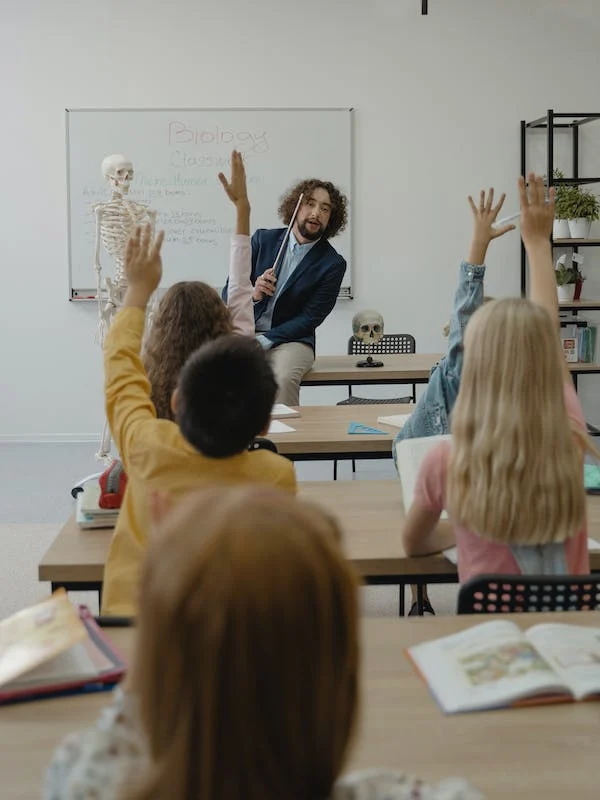Teaching is one of the most important jobs there is. A good teacher impacts so many lives, and students tend to remember their favorite teachers long after they’re no longer students. But being a good teacher isn’t always easy.
A good teacher is able to engage his or her students in the classroom. He or she is empathetic, creative, flexible, and patient. He or she has good communication and active listening skills. A good teacher is committed to his or her own lifelong learning, relishes collaborating with others, and knows how to make students feel respected and heard in the classroom.
The Ability to Keep Students Engaged
Perhaps the most important quality a teacher can have is the ability to engage students and retain their interest. As you learn when you go to school for an early childhood development degree or any other degree in the education field, even very young students can tell when a teacher is bored and disconnected. To get enthusiasm from your students, you need to show enthusiasm yourself. To some extent, teaching is performing – you need humor, a strong stage presence, and creative lessons to keep students engaged.
Empathy
A good teacher doesn’t merely make assumptions about what’s going on with his or her students. A good teacher approaches students with empathy to understand the issues that could be making a student misbehave, fall behind his or her peers, or show a dip in performance.
Creativity
No matter what grade you teach, you’re going to need creativity to find ways to meet all your students’ needs. Lesson planning requires creativity, especially when you’re thinking of innovative ways to get through to your students. When you’re creative yourself, you’ll be better equipped to foster your students’ creativity, as well.
Flexibility
Teachers need to think on their feet to figure out what is and isn’t working for students. If a lesson plan falls flat – which happens to even the best teachers sometimes – you’re going to need to make changes on the fly to recapture student engagement. Adaptability means going with the flow and not letting yourself be paralyzed by indecision or overcome by stress.
Patience
Each of your students is going to come to the classroom with his or her own bundle of challenges, and you’re going to need infinite patience to help students overcome those challenges. Modeling patience for your students is also important. They’re learning much more than academic subjects from you.
Good Communication Skills
Strong communication skills are a must for any good teacher. Solid communication can help your students approach your subject material with openness and a willingness to learn. It can also help you navigate issues with parents and collaborate better with your school’s faculty and staff.
Active Listening Skills
Communication isn’t just talking. It’s also listening. A good teacher uses active listening skills to really hear what students are saying, and pick up on what they aren’t saying, too. Small children might not have the verbal communication skills to explain that they have math anxiety, for example, but a good teacher with strong active listening skills can pick up on that fear even if a student doesn’t express it in words.
A Commitment to Ongoing Professional Development
Good teachers know that learning never ends – it’s a lifelong endeavor. You’ll need to be committed to continuing education throughout your career. You’ll need to stay on top of new developments in your subject field, learn how to use new technologies that might come into your classroom, and keep strengthening your communication and performing skills so you can better engage your students.
Collaboration Skills
Teaching is a hugely collaborative field. You’ll work with administrators, other teachers, aides, and staff to provide the best possible education for your charges. A great teacher is a strong collaborator who remains open to the ideas, thoughts, and needs of the others on his or her team. Collaboration is often about assessing what roles others are filling on a team and determining which role you need to fill. Perhaps you need to be the ideas person on one team, and the critiquer on another, for example.
A Respectful Demeanor Towards Students
Most classrooms have a power imbalance in favor of the teacher – that’s the way it should be, as a teacher should be an authority figure in his or her classroom. But you need to treat your students with respect. Students who feel heard and respected will want to work harder to please you, and they’ll learn more as a result.
A good teacher can mean so much to his or her students. Fortunately, the qualities that make a good teacher aren’t inherent, but can be learned – and you’ll hone them more and more as you gain more experience in your chosen profession.

